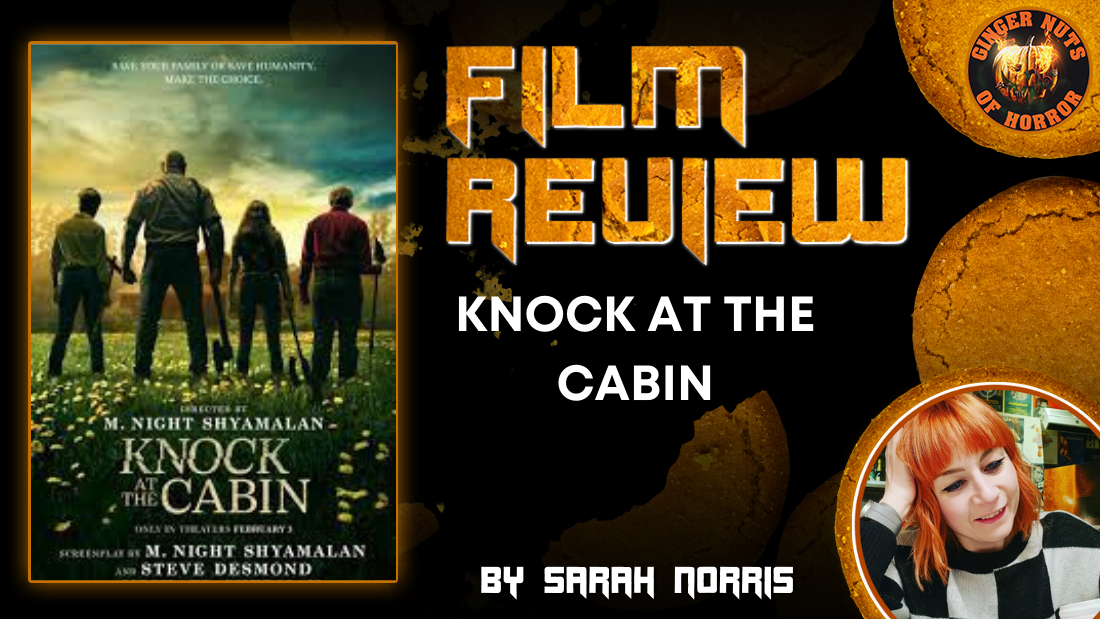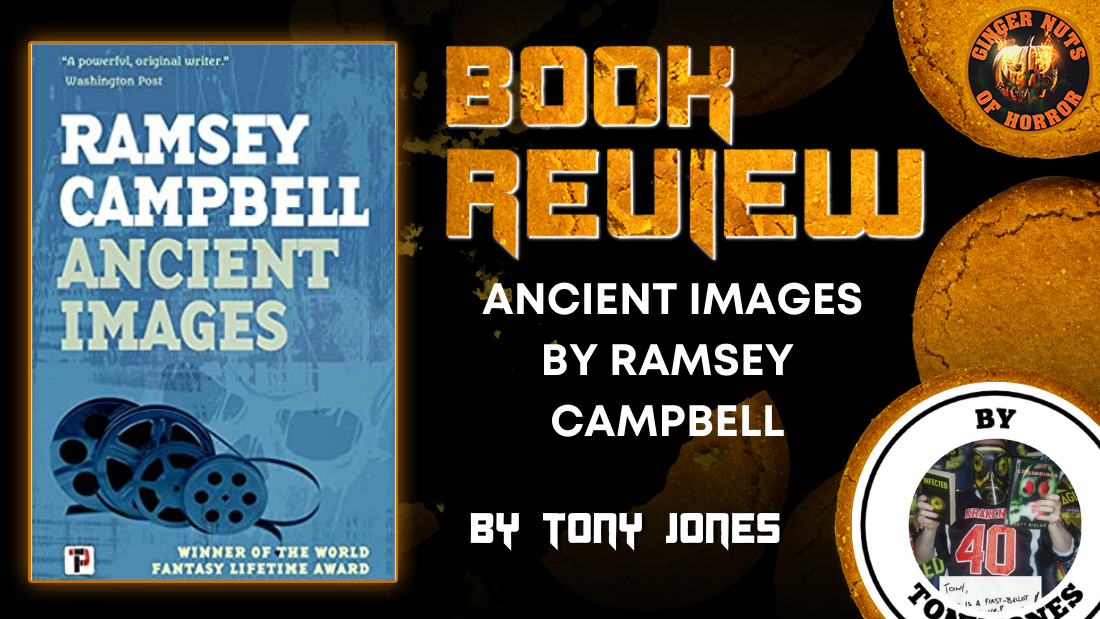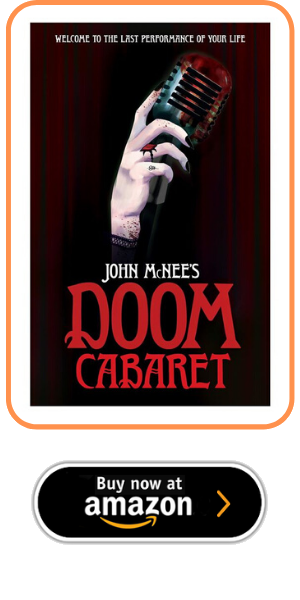|
How to Write Horror Book Reviews (and Not Be a Wanker) by Rebecca Rowland Let’s be clear from the get go: when I write “wanker,” I’m not talking about the punch-and-run internet trolls who slap one-star ratings on books with no explanation. Those individuals are best thought of as the screaming children in the supermarket: try to avoid the aisles they are in and be grateful they don’t have to come home with you. Thanks to Goodreads and (the word my spell check loves to hate) Bookstagramming, anyone and everyone can pen and publish their own assessments of the books they read. There are a number of websites who maintain a crew of vetted staff writers to do that very thing. Writing for a website does come with a bit more responsibility, such as keeping the review within word count parameters and following through with a review once you’ve committed to writing one, but whether you are writing for a site, maintaining a book-centered social media feed, or simply sharing your opinion of a purchase, there are some basic guidelines reviewers should try to follow if they wish to play nice in the (sometimes) snark-infested waters of book reviewing. Thanks, in part, to the ubiquitous nature of Siskel and Ebert in late twentieth century America, some reviewers might feel justified in textually tearing a book to shreds. For those who are unfamiliar with the pair, Gene Siskel and Roger Ebert were Chicago newspaper film critics who hosted a series of movie review television shows from the early eighties to the mid-nineties. When they loved something or someone, their praise was overabundant to the point of uncomfortable, but when they didn’t care for a film, the verbal vitriol was unnerving. A prime example is one tirade by Ebert who classified a Rob Reiner flick as “one of the most unpleasant, contrived, artificial, cloying experiences I've had at the movies,” adding, “I hated this movie. Hated hated hated hated hated this movie. Hated it. Hated every simpering stupid vacant audience-insulting moment of it. Hated the sensibility that thought anyone would like it. Hated the implied insult to the audience by its belief that anyone would be entertained by it.” Those under the age of forty or who lived nowhere near the tracks of Ebert’s hate train can at least agree that with the explosive expansion of the internet has come an influx of mean girl courage cloaked in anonymity, the beer-goggles of the digital age. For some reason, the ability to hide behind a screen has given carte blanche to those who relish seeing others fail and has fueled a twisted Goldilocks syndrome, the compulsion to find fault in everything. Unfortunately, what gets lost in that garbage pile is the real reason for a book review in the first place, and that is, simply, to inform other readers about a book. So, how can one avoid the tiger traps set out by 2023’s digital landscape and still deliver a book review that does, well, what it’s supposed to do? Rule #1: Play fair. First and foremost, your assessment should be your own. When possible, don’t read other reviews of a work before you make your own notes on it. Although our selection of books to read may be inspired initially by another reviewer’s post, try to keep outside voices where they belong: outside. Second, don’t fluff it if it doesn’t deserve it. There’s nothing more suspicious (and slightly unsettling) than a reviewer who absolutely! loves! everything! Kit Power posts that “I don’t review anything that I don’t a) finish and b) enjoy, regardless of how well I like someone,” and this is a major reason why I trust his reviews. They are honest and fair. If you don’t like an aspect of the book, of course you can state that, but a simple “I didn’t care for” or “was not for me” suffices: there’s no need for a full-blown bonfire of hateful rhetoric. Recently, I stumbled across another person’s review of a collection I had recently finished and was taken aback: the reviewer penned a diatribe akin to one of Ebert’s venomous outbursts, including a bold statement that the book’s author, known best for his novels, had “no business attempting short fiction” and should learn to “stay in his lane.” It was as if the reviewer had gone to the writer’s home, dragged him onto the front lawn by the hair, and began beating him with a metal pipe. Third, if you’re lactose intolerant, don’t judge ice cream. If you love splatter, don’t give a quiet horror piece a public dressing down simply for its lack of graphic gore. Rule #2: Play nice. While no one is asking for (whatever the horror version is of) Pollyanna to go traipsing about Goodreads, read for what works. Focus on what a writer does well rather than slipping into that greasy Goldilocks bathtub. Recognize that you aren’t Earth’s official spokesperson for what should and should not be read and enjoyed. What may not be your cup of tea may be exactly what hits the spot for another reader. You can frame criticism in a way that isn’t a total beat down, or you can say nothing at all. No one—except perhaps those employed to do so—is under any obligation to give their opinion of a book they’ve read. If I have agreed to review a book and find I don’t care for it whatsoever, I let the review website owner know that I am likely not the best fit for the piece. Perhaps that’s one reason I gravitate toward anthologies and short fiction collections: if a novel’s style, subject matter, or tone doesn’t jive with me, it’s not going to change, but in a book construction where variety is praised, it’s probable I will find something that tickles my fancy, even if other entries do not. As Daisy Lyle notes in one of her reviews, “I’m not usually a fan of this stuff…so for this review I’ll be mainly focusing on tales that are more up my street.” Steve Stred follows a model I quite enjoy: he divides his review into three sections: “What I liked,” “What I didn’t like,” and “Why you should buy this.” Furthermore, Stred always frames his reviews with the caveat that they are his own personal preferences (and not that his is the only opinion that matters) and tries to close on a high note. Rule # 3: Don’t play Coach or Backseat Driver. In other words, don’t suggest edits. A published book is a static product, and you are not a test audience giving notes. 99% of the time, the book you are reading is a done deal. Most publishing houses, even smaller ones, won’t go back into a doc to tweak something minor if the manuscript passed through a copy editor and proofer. Reputable presses will send the final versions to their authors months before release to give time for changes, but that isn’t always the case. Advance Reader Copies, or ARCs, are galleys that in most cases, have not passed through those second or third sets of eyes yet and will contain typos. It is with great shame that I admit: I’ve broken Rule #3, and in all sincerity, I am embarrassed to have done it. Being an editor and having worked for a press, I knew better: What was it I was trying to accomplish by pointing out minor mistakes most readers would miss? Since the pandemic, printers and distributors have experienced delays, not only in the physical printing of goods but in updating digital files and picking up feeds with changes made to final products. Any changes within the two to three months prior to the release date can result in a book not releasing on time. I realize now: the reviews where I noted minor errors come off as, quite frankly, petty. Unless it’s an egregious error and you are certain the version you are reading is the final one, keep your red pen locked away. In a similar vein, don’t bash an author for making plot choices you wouldn’t have written. You can be disappointed that a conflict didn’t resolve the way you wished or that a character was killed off sooner than you would have liked; the fact that you are moved at all sounds like a win on the part of that author. But don’t tumble into Annie Wilkes’s guest room, wielding an angry axe. Rule #4: Don’t be a wanker. Don’t pen a hateful review for the sole purpose of feeding whatever dark parasite you’re nursing, whether it be a jealousy at someone’s success, a malignant sense of powerlessness, or a desperation to stay relevant. Conversely, don’t render an orthographic love letter with the ulterior motive of later “friending” the author for potential networking-cum-ladder-climbing. Whether your praise is sincere or not, the second action sullies the first, and readers (and authors) will always wonder if your opinion is nothing more than grandstanding for a career or social network bump. If you accept a complimentary print copy of a work, make especially certain to read and review it. While digital copies cost next to nothing to provide, print copies often cost the publisher (or the author him/herself) the cover price of that book after shipping (even if printed by Amazon’s KDP service, prerelease, or proof, copies are not eligible for free shipping). That doesn’t mean you should color your review more favorably, but it does mean you should make good on your word. Finally, it without saying, but don’t blow off the review and then sell the print ARC on eBay. Yes, this kind of dirtbaggery happens, and yes, presses make note of those who do this. Thirty or more reviews on Amazon, even if scathing, make a title emerge in the site’s Suggested Reads algorithm, and no, that’s not fair. Big publishing companies have the money to advertise books more widely, and some independently wealthy writers pay to boost their review numbers. At the same time, there are website owners who encourage their reviewers to be snarky to attract drama (and schadenfreude site visits). As a reader, be wary of loaded language and reviewers who seem a little too gleeful at tearing down an author (or conversely, who seem to be so completely enamored of the author, you consider filing a restraining order on their behalf). Take with a grain of salt a low rating or scathing review from an individual who has read nothing else in the genre (or anything else, period). Reviews are to educate other readers about what books are out there; they shouldn’t be repurposed as personal vendettas, god complex invectives, or primal screams. As a reviewer, write for reputable sites with sane owners, and whenever possible, follow the four rules above. Ebert delivered enough vicious harangues to last us another few decades. rebecca rowland Rebecca Rowland is an American dark fiction author and curator of five horror anthologies, the most recent of which is Generation X-ed. She delights in creeping about Ginger Nuts of Horror partly because it’s the one place her hair is a camouflage instead of a signal fire. For links to her latest work, social media, or just to surreptitiously stalk her, visit RowlandBooks.com. AMERICAN CANNIBAL |
Archives
April 2023
|













 RSS Feed
RSS Feed

